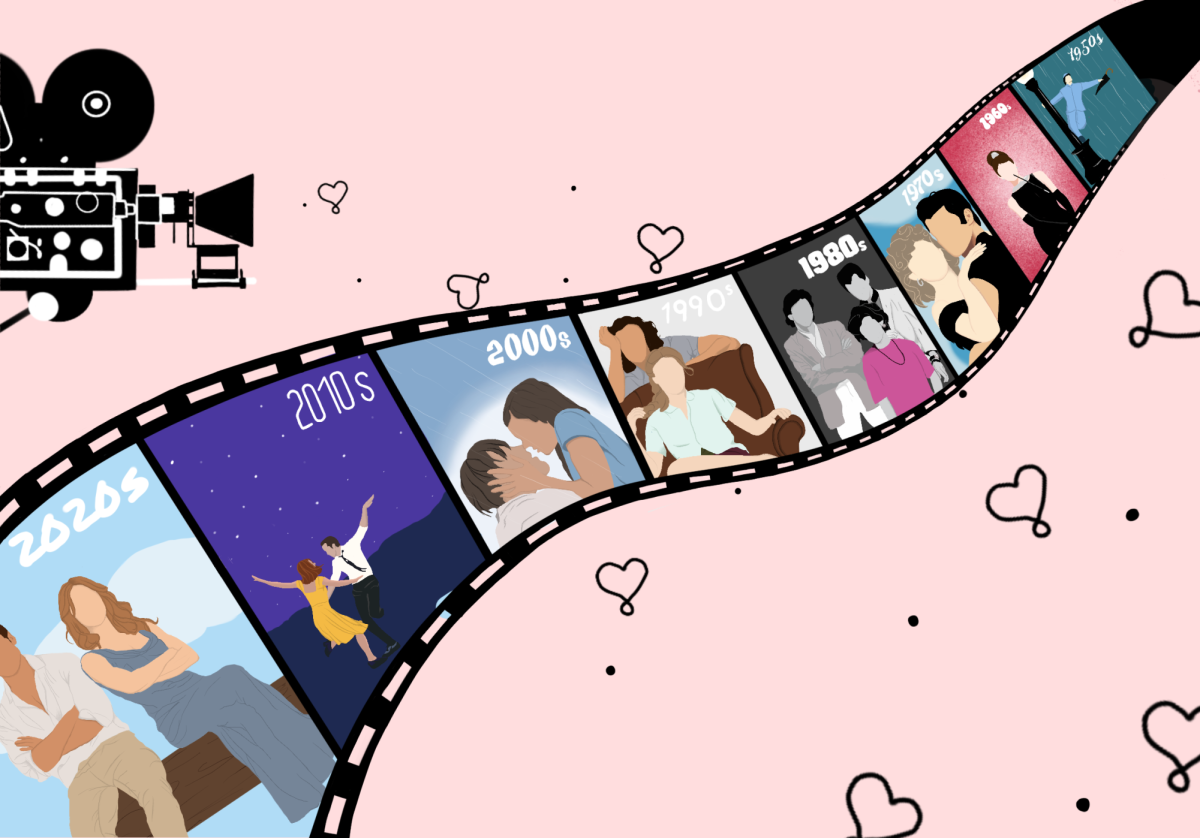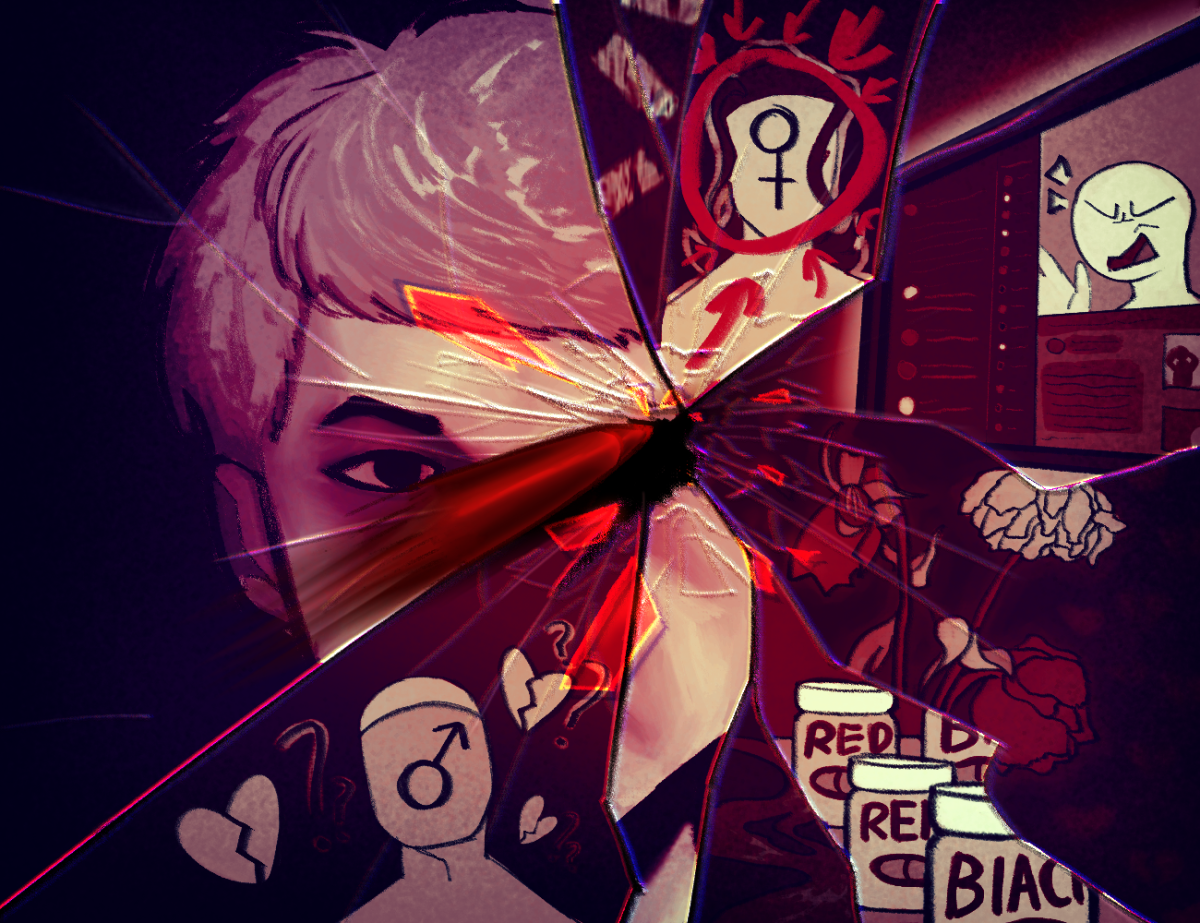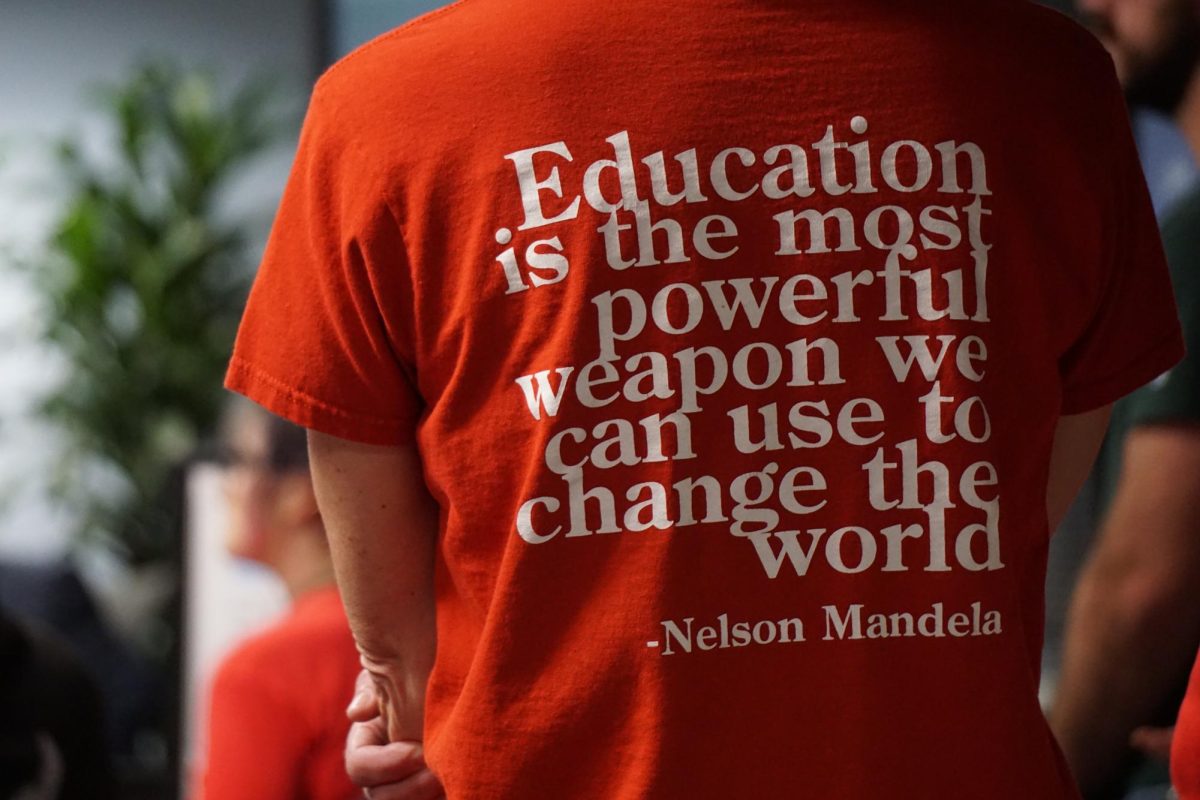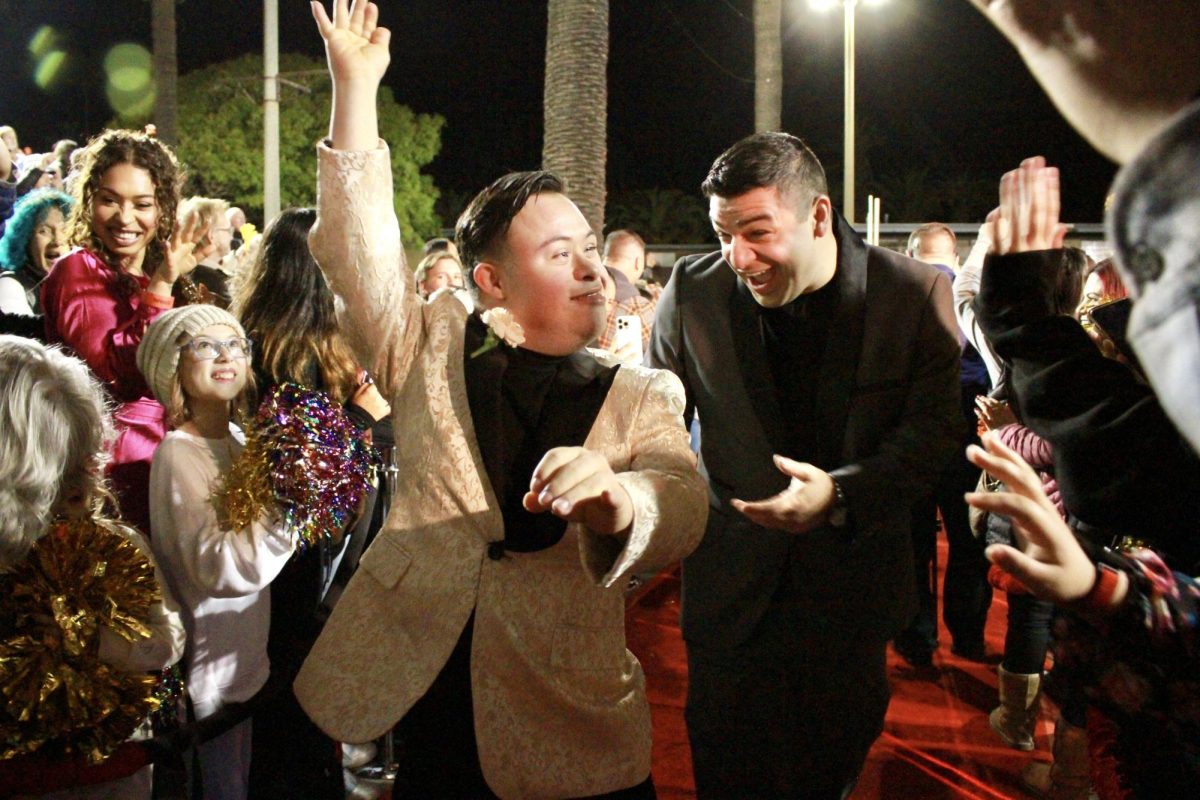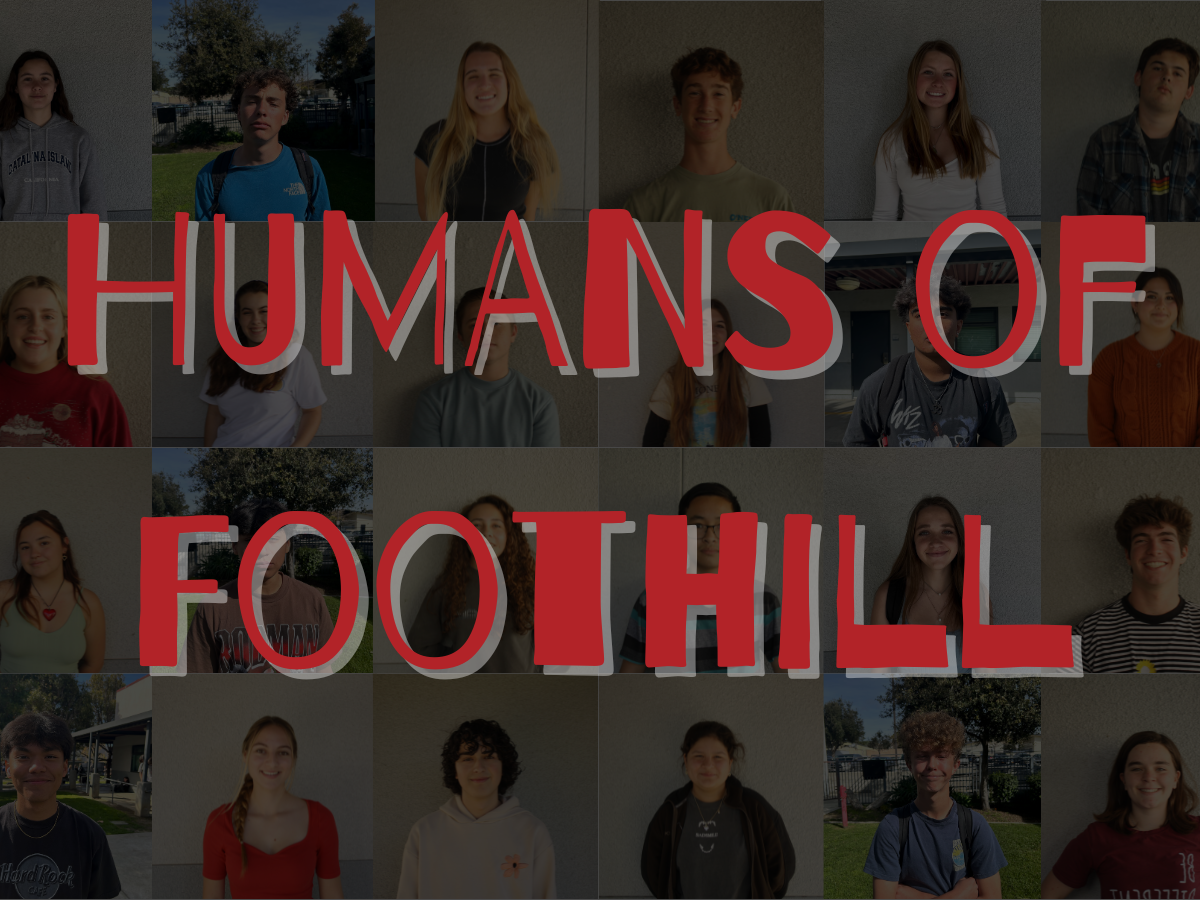On July 21, 2023, Warner Bros released the ultimate coming-of-age and feminist film many of us have been waiting for. From director, screenplay writer and award-winning actress Greta Gerwig, “Barbie” made its grand entrance to theaters all over the world. While some expected a cheesy, propaganda-filled kid’s movie, Gerwig surprised audiences by adding twists we never would have expected to the toy that has captivated millions of little girls’ imaginations: Barbie.
Played by actress Margot Robbie, the story follows the protagonist, stereotypical Barbie. As the blond-haired, blue-eyed face of every doll created under the name, Barbie is oblivious to the immense and controversial impact she has on modern society. A doll of unrealistic looks and body standards, Barbie is appalled when she finds out what her brand truly means in the real world. When Barbieland – a female-dominant society – falls into disrepair due to the limited viewpoints of both the doll and the girl who played with her, Robbie’s character is forced to navigate the struggles all humans face. After thoughts of death, the appearance of cellulite and her fear of change tips her pink, perfect world upside down, Barbie is faced with impossible choices she never would have made as a mindless, plastic doll.
Throughout the course of the movie, Gerwig transforms Barbie from a child’s toy, afraid of change, to a young woman, prepared to take on the privilege of being human and all the roller coasters that come with it. When Barbie chooses to venture into the unknown city of Los Angeles, Calif. in order to restore Barbieland, she meets Gloria (America Ferrera). It is there we discover she is the one who caused Barbie’s increasingly human thoughts. As a lonely mother who works for Mattel, Gloria cannot help but suffer unpleasant existential thoughts and struggle with her body image. She represents a female who is under an extensive set of societal pressures sprouted from the patriarchy. Later, in her heart-wrenching speech about the female experience, Gloria reveals that “It is literally impossible to be a woman.” Serving as the aha-moment of the entire movie, this makes Barbie (as well as her counterparts, brainwashed by the Kens) realize that being a woman is a paradox, and therefore changing themselves so society will accept them is futile.
Since their creation on March 9, 1959, Barbies have become one of the most well-known toys worldwide. On average, 100 Barbie dolls are sold per minute. Not only has Ruth Handler’s creation flourished, but the doll has made a significant impact on society. As a representation of a woman, the Barbie doll is an iconic figure that is notorious for feeding into the body image of young girls. But in this movie, we are introduced to a reversal of this narrative. The main conflict of the film is caused by the Barbies’ belief they have solved every patriarchal issue, female empowerment. To Barbie’s surprise, that belief is not shared by most women, including Sasha (Ariana Greenblatt). Greenblatt’s character points out that Barbies have caused more problems than they solved, and even went as far as to accuse Barbie of being a Fascist.
Do these issues Barbies have caused ever get resolved? At the end of the film, Handler (Rhea Perlman) makes a cameo. “No one looks like Barbie.” She says, revealing her true intent behind creating the dolls. And it’s true; the proportions of a Barbie doll are way out of scale to that of any functioning human being, meaning that it is physically impossible for someone to look like Barbie.
On the contrary, some fans believe that Gerwig took things too far. As themes of feminism and body image are carried throughout the film, some state that such a display of femininity, especially the swapping of the patriarchy, is ‘toxic feminism’, thus it is considered ‘sexist’ to men. This is made clear when Ken (Ryan Gosling) decides to accompany Barbie on her journey to Los Angeles.
As a doll whose sole purpose was to be Barbie’s boyfriend, Ken is portrayed as silly, witless and ignorant. Another instance of this is during the beginning of the film, when Ken tries and fails to impress Barbie by venturing outside his one-given talent of “beach”. Some believe Ken is a representation of men, and the brainlessness portrayed by his character has turned off many viewers. It is commonly argued that such a demonstration was intended to make men look both incompetent and inferior, or to further expose their weaknesses to the public in order to cast a negative image.
The unchanged, reversed patriarchy at the end of the movie was another moment that set off many watchers. After Barbieland is taken back by the Barbies themselves, the Kens were still not allowed to be fully seen. Rather than allowing them to occupy more serious government positions, President Barbie (Issa Rae) provided them with nothing more than a few lower-level positions. It is argued that instead of promoting the idea of equality for everyone and all genders, this message may be misleading to the point of further separation between the two sexes, with women being at the top of this new hierarchy.
It’s worth noting that at the very end of the film, Barbie has a heart-felt conversation with Ken about their relationship. Ken begrudgingly opens up about his emotions by saying he was nothing without “the warmth of [her] gaze.” Barbie reasons by clarifying to both Ken and the audience that a male’s display of emotions is fully acceptable. These issues are further addressed when she explains that women are not mere objects that determine the worth of men. “Maybe it’s not Barbie and Ken. Maybe it’s Barbie, and it’s Ken.” she says.
This controversial narration of the female experience has skyrocketed over social media platforms. With one quick search, you can easily find long lists of content inspired by Barbie herself. “TikTok”, “YouTube Shorts” and others are bursting with new female voices that are both advocating for feminism and addressing universal human struggles. The music used in the movie produced by many well-known artists such as Dua Lipa, Billie Eilish, Ice Spice, Niki Minaj etc. caught the attention of many fans and significantly impacted the exponential growth of Barbie content creations. With various cameos of celebrities including Dua Lipa and John Cena (to name a few), this movie was all the more intriguing for audiences both young and old.
All in all, “Barbie” is a well-crafted movie that may be a large leap in our perception of gender roles. Addressing many principal themes of body image, feminism, toxic masculinity and coming of age, this film may just top the list of the “must-see” movies for future generations. With a rating from the critics of seven and four-tenths stars on IMDb and 88% on Rotten Tomatoes, it gives us all a new perspective and serves as a huge milestone in the path to future growth. And who knows? This film may just win the next Oscar. For all who are interested in exploring something new, refreshing and dazzling– sit back with a bag of popcorn and enjoy Gerwig’s spellbinding masterpiece, “Barbie.”



